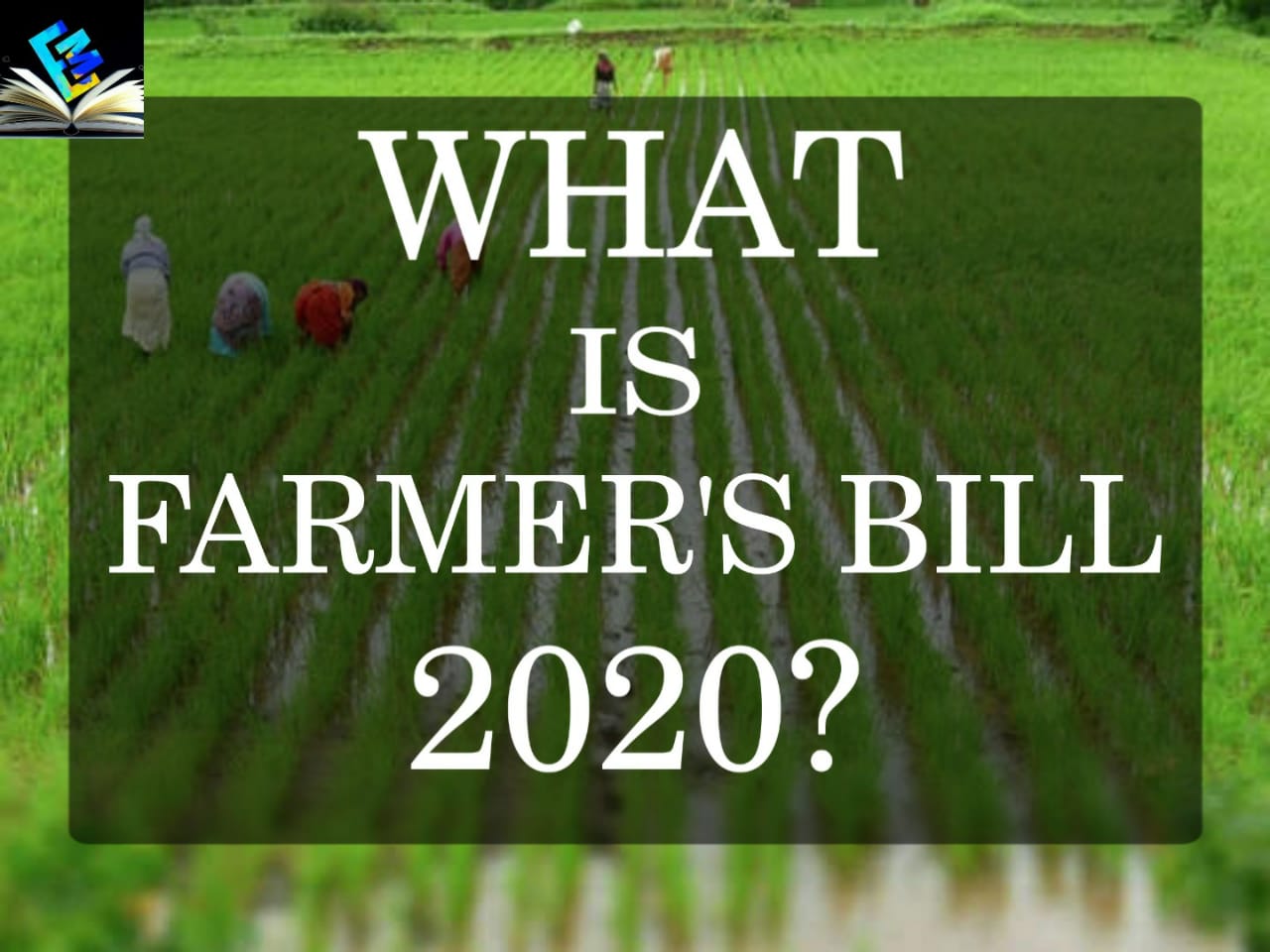
What are the Farm Bills, 2020
The three Agriculture Bills which were introduced by the Government of India in the form of ordinance in the month of june, aiming to bring a change in the method of marketing, selling and storing the agricultural produce. These bills were passed in the Lok Sabha and Rajya Sabha during the delayed monsoon session by way of voice-vote, despite loud and forceful protest by the opposition. On 27th September, 2020 President Ram Nath Kovind gave his assent to these three Agriculture Bills making it an Act. The Bill was introduced by Narendra Singh Tomar (Minister of Agriculture and Farmers Welfare).
The government introduced reforms in its three acts that are:
- Farmers (Empowerment and Protection) Agreement on Price Assurance and Farm Services Act, 2020
- The act gives a framework of Contract Farming i.e. an agreement between the farmer and the buyer about its agriculture produce even before its production. In other words it means that the farmer can strike a deal with the proposed buyer about his products before the production of that product.
- This farming agreement must be made for a minimum period of one crop season or one production cycle, it can be extended upto five years. In case the farming product takes longer than the mentioned period, the buyer and farmer may decide mutually.
- Farmers’ Produce Trade and Commerce (Promotion and Facilitation) Act, 2020
- The act allows the farmers to sell their agricultural produce anywhere in the country. Earlier it was mandatory for the farmers to sell their agriculture products in the Agriculture Produce Market Committee, mandis and other markets as notified by the APMC Act. In other words this act allows the farmers to sell their produce anywhere in the country to any person, organisation or company at their price. It provides farmers with various trading channels along with the facility of electronic trading.
- The act prohibits the state from levying any tax or cess or fee on the farmers for trading their produce outside the state’s premises.
- Essential Commodities (Amendment) Act, 2020
- The act was enacted in the year 1955, in order to ensure the delivery of certain goods fluidly without any hoarding or black marketing of that product, which if done might affect the livelihood of people.
- The Central Government declares certain goods or products in the category of ‘essentials’ , so that these goods can be made available to the citizens at a fair price for which the government may fix MRP of any product, beyond which the supplier can not ask the consumer. The govt. Has the power to include or exclude any product from the list of the ‘essentials’.
- The Government amended this act, with the provision that it would only regulate the price and supply of certain commodities in the time of war, famine, extraordinary price rise, or natural calamities. The products which are deregulated includes cereals, pulses, potato, onion, edible oilseeds, and oils.
The government is of the view that these acts will provide opportunity with more choices, competition leading to better prices and also helping in private investment in the sector of agriculture marketing, processing and infrastructure.
Although the Farmers are of the view that these acts will take apart the minimum support price(MSP) and the big corporate houses will dictate the market, thus making it difficult for the farmers to sell their produce at lower rates.
For more information Visit Our Site






